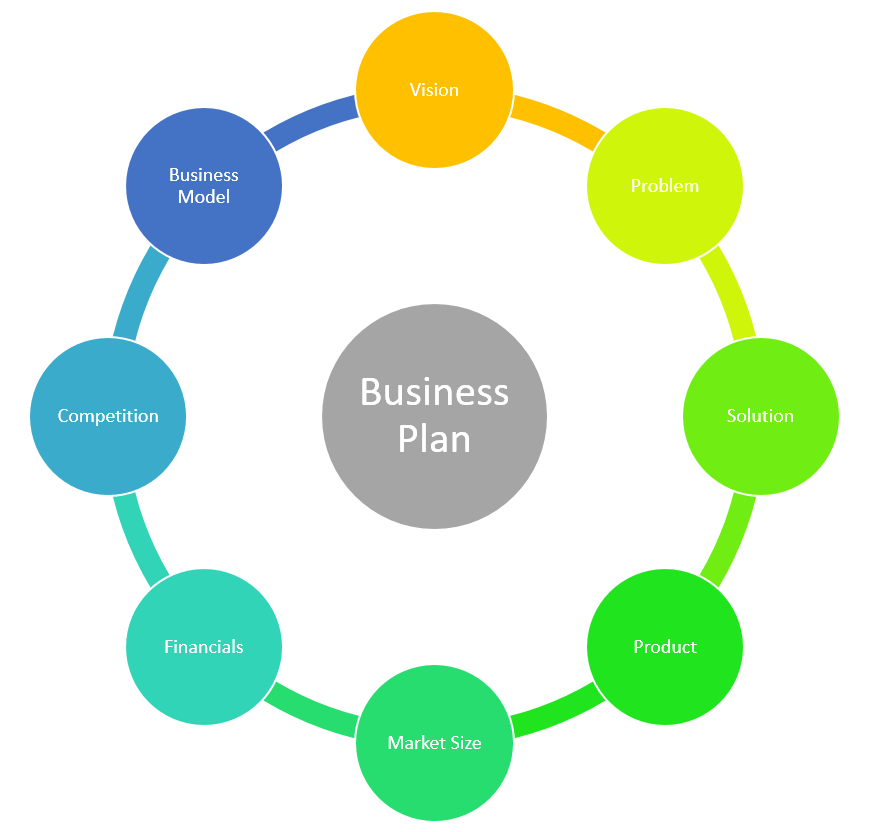Write a Business Plan
Business Plan
With the first step in our “how to start a business” guide out of the way, you can move on to step two: writing a business plan. Regardless of which business idea you decide to pursue, a strong business plan is essential to successfully starting a small business.
Although you may want to jump on your idea and get started right away, taking the time to sit down and write out a business plan is easily one of the smartest, most important steps you’ll take in launching your business. In fact, studies have shown that businesses with plans grow 30% faster than businesses without plans.[2]


At its core, writing a business plan is about thinking through and answering difficult questions about your small business—questions that, when considered, will force you to contemplate the purpose of your business, the market you serve, and challenges you might not have thought of otherwise. When done correctly, the process of writing your business plan will lead you to refine your initial idea into something much more resilient and clear, which promises future success.
This being said, these are the 10 main questions that you’ll want to answer as you go through the process of creating your business plan:
What does your small business do?: Once you have a business idea, you’ll want to take a moment to write out, in the simplest terms, what product or service your business offers.
Who is your small business for?: This is called your target market—the group of people whom your business is meant to serve.
The more specifically you can answer this question, the better you’ll be able to create products, services, and marketing campaigns that meet the needs of your demographic.
Who are your competitors?: As you’re starting your business, it’s extremely important to research and find out who your main competitors are and how their businesses are similar and different from yours. This research will save you from generating a business model that too similarly mirrors an already established alternative.
What is your unique value proposition?: In other words, what is it about your business that will cause your customers to choose you over your competitors?
How will your customers find you?: Your answer to this question will form the foundation of your business’s marketing strategy. You might think about paid advertising, social media, your online presence, as well as simple word of mouth.
What resources will you need?: You’ll want to consider what resources you’ll need to create your product or provide your service—including equipment, physical space, employees, and more. This being said, you’ll want to take the time to list out all the one-time and recurring expenses you’re likely to incur as part of your cost of doing business.
Copyright © 2020 businesscreditchicks.com
All rights reserved.
About Salient
The Castle
Unit 345
2500 Castle Dr
Manhattan, NY
